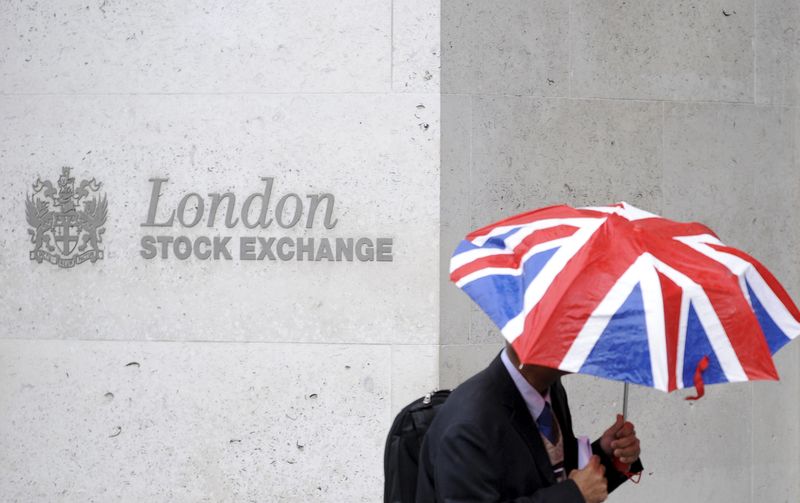(Bloomberg) -- U.K. equities have underperformed every year since the 2016 referendum, and have been a consensus underweight among money managers. Just as the long-shunned market was starting to recover from years of political instability and uncertainty over ties with the European Union, the coronavirus pandemic has left the country facing its worst recession in 300 years.
As the lockdown gradually eases, with English pubs, restaurants and cinemas set to reopen in July, clarity on negotiations with the EU before the end of the transition agreement in December may revive investor interest in a market that’s trading near historically cheap levels.
The FTSE 100 Index has lagged behind major indexes over the past four years, and in local currency terms is trading near levels it was at just before the vote four years ago. In dollar terms, its underperformance is even more striking, with a nearly 20% drop.
A tentative market recovery following Boris Johnson’s decisive electoral victory has been hampered by the lockdowns in the country that’s among the worst hit by Covid-19. A collapse in oil prices has also dragged on the megacap FTSE 100, given the almost 12% weight of energy stocks in the index.
Years of underperformance have pushed U.K. stocks’ discount to global equities to an extreme, one of the reasons the U.K. is the most preferred equity market in UBS Wealth Management’s asset allocation. The manager sees an improvement in earnings revisions on the back of higher oil prices, while noting the recent underperformance.
“The U.K. market should benefit from a rotation out of defensive growth stocks into value names, given its large exposure to value sectors such as basic materials, energy, and banks, which account for a combined 40% of the FTSE 100,” UBS WM strategist Claudia Panseri wrote in a note last week.
The exposure could be a double-edged sword. While the U.K. is traditionally seen as a high-dividend market, the pandemic’s impact has resulted in heavyweights including Royal Dutch Shell (LON:RDSa) Plc cutting payouts.
British equities were downgraded to underweight last week by Citigroup Inc (NYSE:C). strategists, who said the market’s dividend base remained highly concentrated, with over a quarter of the payouts coming from the “at-risk” energy sector.
The U.K. remains the most unloved region for fund managers, according to Bank of America Corp (NYSE:BAC).’s June fund manager survey, which showed a net 29% as underweight. That said, allocation to U.K. equities increased by 4 percentage points this month, the survey showed, while staying well below the long-term average.
Positioning on the U.K. market could also largely depend on sterling moves, which are likely to be driven by the Brexit outcome. Rising risks of no deal could add pressure on the currency. And while the FTSE 100 has long moved in opposition to the pound, the two asset classes are currently experiencing their longest period of positive correlation since 2014.
The base case for Goldman Sachs Group Inc (NYSE:GS). economists is that the EU and the U.K. will strike a “thin” free trade agreement by the end of the year.
The deadline for an extension request is at the end of June, and the government already stated it will not ask for another delay. That leaves until Nov. 26 to reach an agreement with the EU in a manner that will leave enough time to ratify a deal before the end of the transition period on Dec. 30.
While the EU is leading the fiscal stimulus effort, the U.K. has also been active and more could be on the cards, especially after investors expressed concerns over the Bank of England’s slowdown in asset purchases. Signs of economic recovery have also materialized after manufacturing and services data on Tuesday beat expectations, and the Citi Economic Surprise Index bounced.
©2020 Bloomberg L.P.
